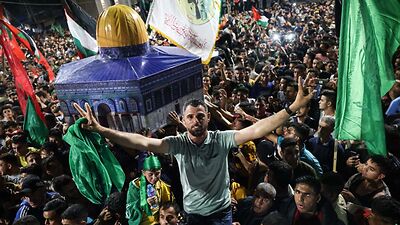Upon the escalating violence in the region, a ceasefire under terms brokered by Egypt began at 2 am local time on Friday, 21st May. This brought an end to the 11 days of conflict in which more than 250 people were killed, including 66 children—most of whom were located in Gaza. In Israel, 12 people including two children were killed, according to its medical service. Israel and Hamas have both claimed victory in the conflict. On 10th May, violence first broke out between Israel and Palestinian militant group Hamas in Gaza following the rising tension in East Jerusalem which culminated in clashes at Al-Aqsa, one of Islam’s most holy sites.
On Thursday, the Israeli Political-Security Cabinet announced that it “unanimously accepted the recommendation” for a ceasefire. Individuals in Israel have criticized Prime Minister Benjamin Netanyahu claiming he has halted the conflict sooner than he should have. A Hamas official told the Associated Press news agency that the ceasefire would amount to a “victory” for the people of Palestine, and this view was shared by people celebrating in Gaza. Basem Naim from the Hamas Council on International Relations told BCC that he was skeptical about whether this ceasefire and truce would last as he stated it comes “without justice for Palestinians, without stopping the Israeli aggression and Israeli atrocities.” Netanyahu’s Office made clear on Thursday that its military will re-start its campaign against militant groups in Gaza if they believe they “fail to uphold the terms of the agreement.”
United States President Joe Biden has stated that the ceasefire has brought “genuine opportunity” for progress towards peace. Further, he added that the US has fully supported Israel’s “right to defend itself against indiscriminate rocket attacks.” Al Jazeera’s White House correspondent Kimberly Halkett stated that President Biden’s support of Israel is likely to raise further challenges as many in his party see his support of Palestine to be unequal to his support of Israel. British Prime Minister Boris Johnson has said both sides “must find a durable solution to the conflict.” During the course of the conflict, Israel Defense Forces (IDF) carried out multiple aerial bombardments of Gaza, with the Palestinian militant group Hamas firing rockets into Israel—most of which were intercepted by Israel’s Dome defense system. Due to the IDF’s aerial bombardment of Gaza, close to 72,000 Gazans have been displaced according to UNICEF. Palestinian officials believe that it would take years to rebuild the impoverished enclave that is also suffering from COVID-19. UNICEF has also found that nearly 800,000 people did not have access to piped water in Gaza. Margaret Harris, a spokeswoman for the World Health Organization, called for immediate access to health supplies, as the territory’s health facilities are at risk of being overwhelmed by the thousands of injuries caused by the IDF’s defense system.
Overall, the truce signals an end to the ongoing conflict and bloodshed which has increased tensions between Israel and Palestine even more than before. However, the damage caused by the weeks of conflict is apparent. Gaza’s housing ministry has stated that 1800 housing units were unfit for living with another 1000 being destroyed. A resident in the area, Azhar Nsair, told the Associated Press news agency that “we see such huge destruction here, it’s the first time in history we’ve seen this.” Despite this, for the first time in weeks, people in Gaza have been able to go outside in relative safety, stepping over rubble and smashed glass, to celebrate the ceasefire.
- Violence Escalates In Beita, Occupied West Bank - July 29, 2021
- Islamophobia In Canada - July 22, 2021
- Ongoing Protests In Cuba - July 22, 2021


